How to Dispose of Garden Waste in a Safe & Sustainable Way
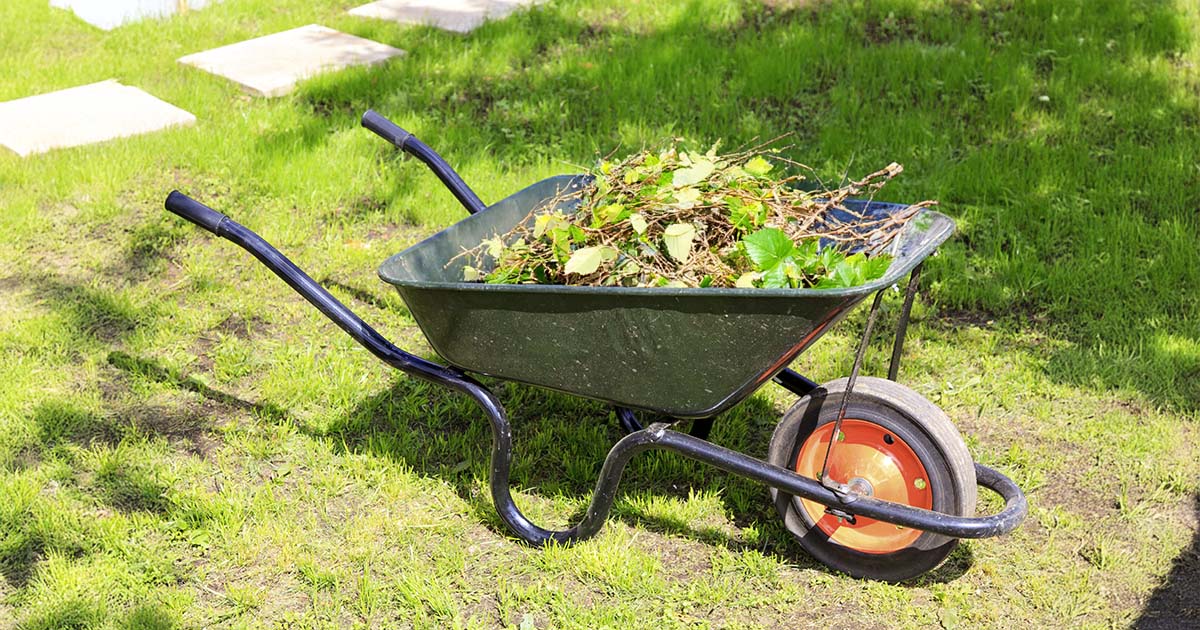
Whether you’re refreshing your garden or tackling a full-scale landscaping project, dealing with waste is an inevitable part of the process. From uprooted plants to old garden sheds, getting rid of garden waste can feel overwhelming, especially when handling large amounts.
Grass clippings, leaves, and tree branches can pile up quickly, making garden waste removal tricky. Fortunately, there are several ways to dispose of this type of waste without relying on a trip to the tip.
This guide explains the best ways to get rid of garden waste while keeping the process quick, easy, and affordable.
Your council’s garden waste collection service
The vast majority of UK councils offer garden waste collection. This is a simple way to dispose of grass clippings, leaves, small branches and other items of green waste. However, bin sizes may be limited, and collection schedules may not be frequent enough for larger projects. In terms of pricing, some areas, such as certain boroughs in London, offer kerbside green waste collection for free, while others charge a fee. Check with your local authority to understand their services, restrictions, and costs before choosing this option.
Can you take garden waste to the tip?
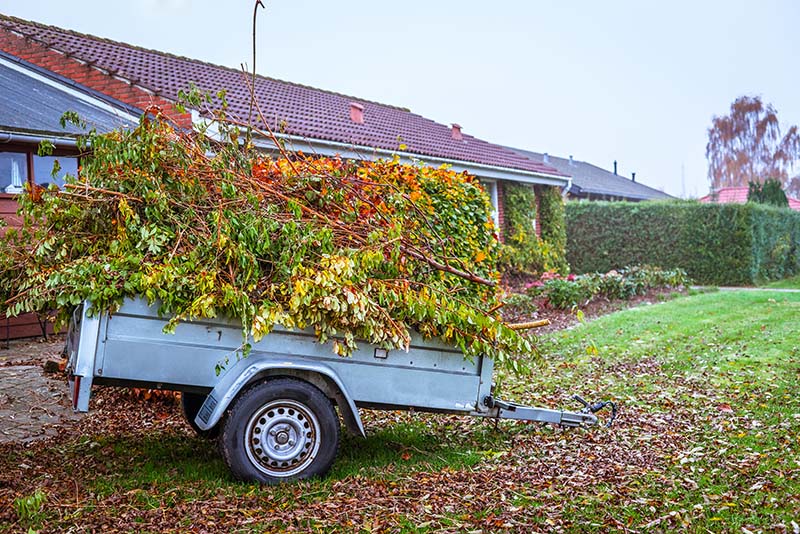
Yes – many tips in the UK accept things like soil, grass and tree branches, as well as items such as fence panels, garden furniture and turf. If you're taking a large load, however, some recycling centres require prior approval – so it’s always best to check ahead of time. Some locations may also ask for proof of residency or require a permit if you’re using a van or trailer.
If you have access to a vehicle, recycling centres can be a great way to get rid of garden waste. However, if you don’t - a different method, such as a removal service would likely be better for you.
Use a HIPPOBAG for garden waste removal
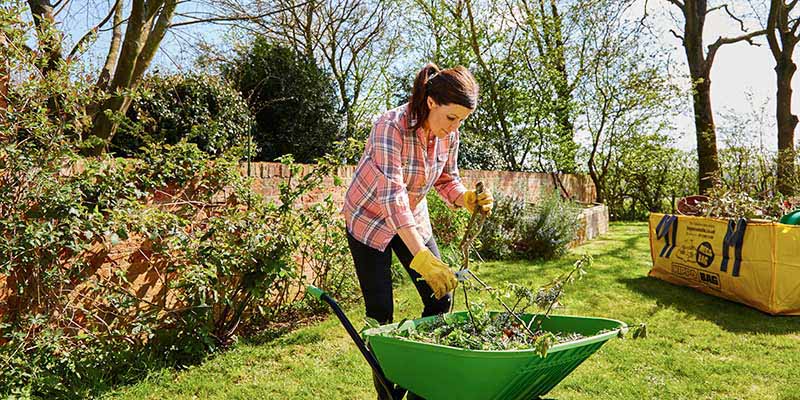
For a simple, convenient and reliable way to get rid of garden waste in the UK, HIPPOBAGs offers the perfect solution. Our strong and flexible garden waste bags come in a range of sizes and make disposal easy – even in areas where space and access are restricted and skip hire isn’t possible. They are sent out in the post and collected by a craned vehicle once full.
Simply buy your HIPPOBAG on our website or from one of our trusted retailers, take your time to fill it up, and when you’re ready, give us a call – we’ll take care of the rest.
Book a Man and Van for help on garden disposal
If the scale of your project means you could do with an extra pair of hands, a man and van waste removal service could be the assistance you need for bagged garden waste or items like garden furniture, fence panels, dismantled sheds, etc. A reputable man-and-van service takes care of everything from collection to disposal, making the process as seamless as possible.
Before booking, always check that your waste remover is licensed by the Environment Agency. Unlicensed carriers often resort to fly-tipping – the illegal dumping of waste – which harms the environment and could lead to fines if the waste is traced back to you. By choosing a licensed service like HIPPO, you’re ensuring your waste is disposed of responsibly.
Hire a skip for large-scale projects
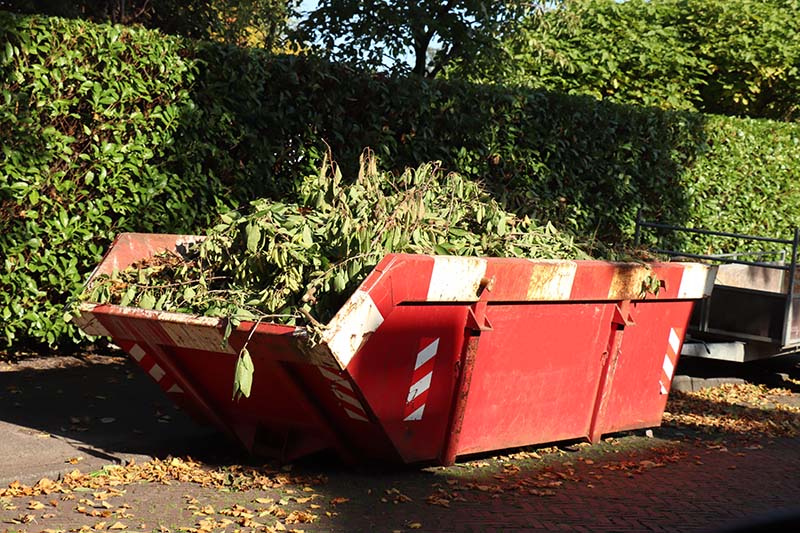
For large garden projects that will create a lot of waste, consider hiring a skip. Skips come in different sizes (typically 6, 8 or 12 cubic yards), ensuring you have enough space to dispose of all your waste. Once your skip is delivered, you can fill it at your own pace, giving you the flexibility to manage waste disposal in line with your project’s timeline.
To hire a skip, you’ll need to decide on the size, book the delivery and collection dates, and most likely get a permit from your local council to place the skip on the road. Skip hire companies can often arrange the permit for you.
For more advice on how to remove garden waste using our quality services, visit our blog and FAQ page.
Other ways to getting rid of garden waste sustainably
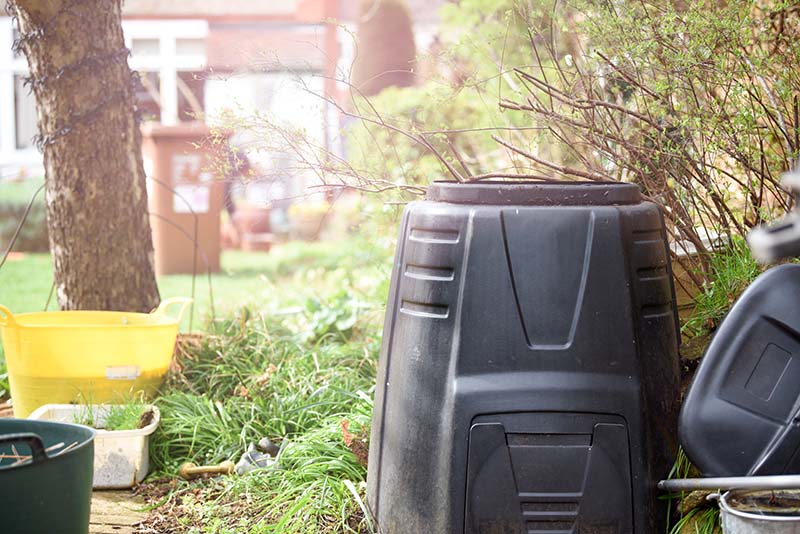
If you’re wondering what else you can do with garden waste, home composting is a great alternative. Instead of throwing away grass cuttings, leaves, and plant clippings, turn them into nutrient-rich compost. Composting is an easy way to recycle organic waste and improve soil quality. This compost can be used in garden beds, potted plants, or even to fertilise your lawn.
Looking for more sustainable gardening tips? Explore more ways to get rid of garden waste and learn how to dispose of garden soil responsibly.
FAQs
Is it illegal to put garden waste into the black bin?
The short answer is no, but it’s not recommended. General waste bins are usually sent to a landfill or incinerated. When garden waste decomposes in landfills, it releases methane, a powerful greenhouse gas that contributes to climate change. While you can put garden waste in the black bin, there are more sustainable disposal options available.
Most garden waste is biodegradable and can be composted or recycled. Using a garden waste bin, garden waste bags, or a skip is a much better alternative. These options help reduce landfill waste and support environmentally friendly disposal methods.
How much does it typically cost to remove your garden waste in the UK?
The cost of disposing of garden waste depends on the method used. Taking it to a local household waste recycling centre is usually free. Council-run garden waste collection services typically cost between £50-100 per year, depending on location.
Private waste removal services vary in price based on the volume of waste and the type of service required.
Choosing a reliable, licensed waste removal provider is essential. Find out more about our garden waste disposal services and get quotes for HIPPOBAGs, Man and Van, and skip hire.
What happens to garden waste after disposal?
Most garden waste in the UK is recycled into nutrient-rich compost, which is then used for parks, farms, gardens, and landscaping projects. Woody waste, such as branches and twigs, is often turned into biomass fuel for energy generation. If garden waste is contaminated with plastic, hazardous waste, or non-compostable materials, it may end up in a landfill instead.
At HIPPO, we follow strict policies to prevent contamination and maximise recycling efforts, ensuring as much waste as possible is repurposed rather than discarded.

